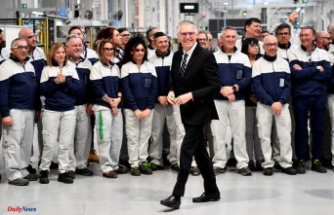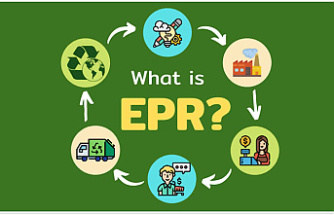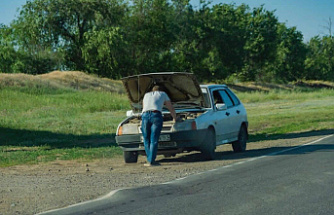Champions of self-driving cars are embarking on a journey through one of the state's most winding and hazardous passageways — the Illinois General Assembly.
Recently, state legislation was introduced that seeks to regulate use of this emerging technology by imposing tighter auto safety standards on cars using automated driving systems. It argues this is best accomplished by restricting the operation of self-driving cars to companies that make their own vehicles and have a track record for safety.
It's a controversial bill that's perceived as a sop to legacy automaker General Motors, which was instrumental in pushing the measure introduced this month by Rep. Mike Zalewski, D-Riverside. It's strongly opposed by a coalition of driverless technology players, including Google, Uber Technologies, Ford and Volvo; the companies claim GM wants to ace them out of the self-driving auto market or, at the very least, slow them down.
Yet while this impending legislative fight is being framed as a marketplace tussle of old versus new ideas, Zalewski's bill does raise another important question: Are these new self-driving vehicles being properly tested and will the public be safe in them once these vehicles are marketed en masse?
It's a situation our lawmakers, on every level, need to figure out. If they determine the self-driving proponents are ignoring yellow caution lights, then they should compel them to stop and do it right.
Surely, GM intends to hit the safety issue hard as the Zalewski-backed bill wends its way through the General Assembly. (It's been sent to the House Transportation Committee.)
GM will play up its experience in conventional auto safety and how that expertise is being incorporated into the development of self-driving vehicles. Crash tests, overriding computer systems in case of emergencies, and tamper-proof technology are part of GM's pitch.
When driverless cars hit market, blame for accidents may shift to industry Ashley Halsey IiiIf anything about driverless cars can be considered an old riddle it is this one: the car is driving itself down a residential street when a woman pushing a baby stroller suddenly enters a crosswalk. Unable to stop, should the car's computer opt to hit mother and child, or veer off to strike a...
If anything about driverless cars can be considered an old riddle it is this one: the car is driving itself down a residential street when a woman pushing a baby stroller suddenly enters a crosswalk. Unable to stop, should the car's computer opt to hit mother and child, or veer off to strike a...
(Ashley Halsey Iii)"From General Motors' perspective, before deploying these things, make sure they are as safe as human-driven vehicles," says Paul Hemmersbaugh, GM's chief counsel and policy director for transportation as a service. "It's different than putting out an app."
The technology and auto rivals that make up the Self-Driving Coalition for Safer Streets, oppose passage of Zalewski's bill. They say the measure hurts safety because it chokes off new ideas and innovation by limiting to GM those who can operate in the self-driving car world.
"The current bill would prevent lifesaving innovations from reaching the state and inadvertently lock Illinois residents into using a single company's products, while denying people the opportunity to use other self-driving technologies," the coalition said in an email statement to me.
Google, Uber and other car companies contend GM's safety talk is a smoke screen and the federal regulators have issued safety standards that its coalition members are already following.
GM has been actively pushing its legislation on a state-by-state basis.
On its home turf in Michigan, a self-driving car bill was passed that ultimately leaned in Detroit-based GM's favor but allowed some involvement by technology companies.
The Illinois fight may be pretty intense.
Coalition members are set to make the argument that GM has no lock on safety and that innovations are coming from tech and automobile companies in Silicon Valley, Europe and throughout the world.
Nevertheless, some self-driving experiments have had their issues, and troubling perceptions linger.
The New York Times reported last week that Uber conducted a self-driving car experiment late last year that resulted in a Volvo racing through a red light on a busy San Francisco street. Uber said an employee riding in the car was responsible for the problem. The Times reported that Uber sources said the car was self-driving as it went through the intersection.
Closer to home, it should be noted that many a bill has died in the Illinois General Assembly and I wouldn't predict where Zalewski's effort will ultimately end up.
But at least it's raising a timely question: Is all this driverless vehicle technology going down the right road?
roreed@chicagotribune.com
Twitter @reedtribbiz
Our editors found this article on this site using Google and regenerated it for our readers.












